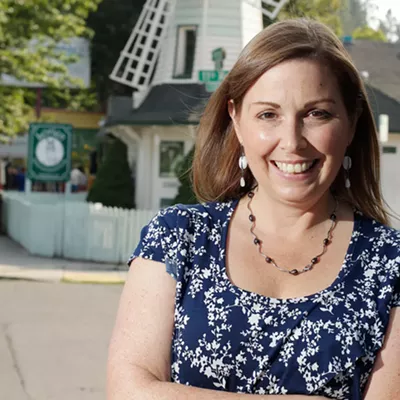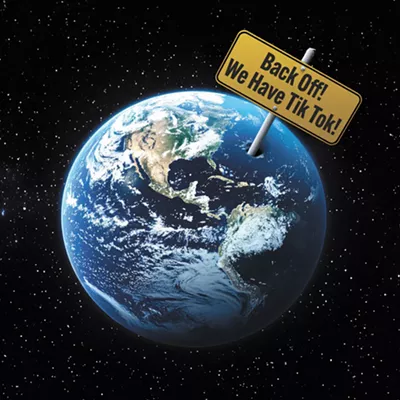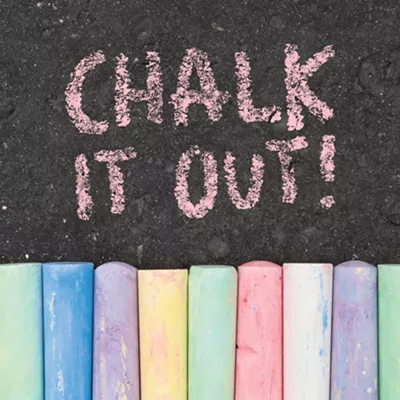Three weeks ago I took a picture of a bud on the peony plant at the end of my driveway. It looked about ready to open, and I thought I'd snap a photo every day for a few days and end up with a cute Instagram post.
A week in, the bud had barely changed. But I was OK with it — I was struggling with ideas for a column, as always, and appreciated the peony handing me a tidy metaphor about progress. Soon the flower would open, and I would write about how I had waited so patiently.
Another week passed. My neighbors' peonies exploded into flower, their blossoms so full they collapsed to the sidewalk in piles of ruffles like exhausted cancan dancers. My bud opened a millimeter or so.
I stopped at the end of the driveway to lament at the end of a walk with my husband. "I was going to write about gardens and waiting and accepting slow progress," I said, stomping past the flowerbed. "But this stupid thing is taking forever. It's not making any progress at all."
"I see," he said. "And how much progress have you made on your column?"
That was beside the point.
Since my first novel came out in January, people have been asking how I managed it. I started drafting it when I was working full time in a chaotic job, my children were in kindergarten and third grade, and I was finishing a master's degree one class at a time. When on earth did I have time to write?
The truth is, I didn't. I was stressed, anxious, and in pain. At one point I told a friend with absolute confidence that I didn't need as much sleep as other people. I was determined to find time to write, which I suppose is admirable, but I was doing it by stealing from myself in other ways.
By the time I sold my novel in 2022, I'd quit my job in a state of burnout and pushed my body to the point that I finally told my doctor about my chronic pain, which it turns out was being caused by a genetic disease that I was exacerbating with hours of hunched-over typing.
"Now, when people ask me how I have time to write, I say I sometimes don't."
In the two years since, I've been learning to change. I'm writing this column with voice-to-text software. I've started my own business (since most novelists have to have day jobs, tragically) so I can better manage my time and stress. I do my physical therapy no matter how whiny I feel. I get enough sleep (for real). I occasionally ask for extensions on my columns. And for my creative work, I guide myself with a new motto: Slow progress is still progress.
Now, when people ask me how I have time to write, I say I sometimes don't. I still write, and I'm still driven to, but I try to move at whatever pace my mind, body, and life demand.
I wish I could say I always embrace that pace, that I have become a paragon of patience. But, well, I still yell at flowers for opening too slowly.
Learning to accept slowness is a slow process, too.
It's hard enough to do when the thing you're waiting for is beautiful during the waiting, like a flower. It's harder when it's messy, like art. It's awful when it's something that should change as quickly as possible: like what scientists call "wicked problems," such as climate change or hunger, which desperately need to be solved but are so knotted up with complicating factors, there is no quick way to disentangle them.
Biology and physics insist on being pesky obstacles to progress both big and small. Human tendencies like greed and violence, not to mention impatience, interrupt even the slowest forward motion.
Forging ahead with patience can be discouraging. Sometimes progress is so slow, it looks like it isn't happening at all. Sometimes, the place we (slowly) end up isn't the place we thought we'd be. It takes faith to believe that tiny steps can truly add up to something bigger, and diligence to ensure that slowness doesn't turn into excuses or apathy.
Still, even when I'm not particularly good at it, I believe embracing slowness is a worthwhile practice for humans, on our own and together. I can't promise that it's easy, or that it brings instant peace — or any peace at all.
But I can tell you that yesterday, the peony at the end of my driveway bloomed. ♦
Tara Roberts is a writer who lives in Moscow with her husband and sons. Her novel Wild and Distant Seas was published in January. Follow her on Twitter and Instagram @tarabethidaho.
























